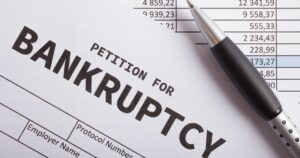If you plan to file for Chapter 7 bankruptcy, you might be under the false presumption that you will have all your debts erased and start over fresh. But there are debts you keep even after filing for Chapter 7 bankruptcy.
While Chapter 7 does dissolve most debt obligations, there are some that stick around regardless of whether you succeed with your case or not.
Chapter 7 does provide you with a fresh start financially, and debts that are discharged in Chapter 7 you no longer pay. However, some obligations will remain and some you may need to continue to pay even during the Chapter 7 process.
It is best that you consult with a bankruptcy attorney to see what debts you might have to keep paying or what obligations you will keep even after you discharge the other obligations in your name.
What Debts Remain in Your Chapter 7 Case?
You are filing for Chapter 7 bankruptcy, and now comes the time to see what debts you might still pay long after the rest of your debts go away. Most of these obligations are obligatory, while others are suggestive. Regardless, you should speak with an attorney to see which debts are in your best interest to continue paying while you go through the process of filing for Chapter 7.
Post-Petition Debts – Debts You Incur after Filing
Filing for Chapter 7 bankruptcy means that you file a petition with the court. All eligible debts are listed within that request, which means that any debts you create after that petition are deemed post-petition debts – they will not be included in your bankruptcy. Therefore, they do not fall under the Automatic Stay protection either.
You must continue to pay these debts because they will not discharge in bankruptcy.
- Utility Bills – Utilities, such as gas, electric, and water, will continue to accumulate even if you have filed a petition for Chapter 7 bankruptcy. These are post-petition debts you must continue to pay for. Some that you may not be obligated to pay for are those discontinued and named in your petition, such as a turned-off cellphone or TV provider.
- Rent or Lease Payments – If you are renting for housing, you must still pay your rental fee each month. Even if you are in the process of filing for bankruptcy, your landlord can evict you and present a judgment for the remaining balance. Therefore, continue paying your rent and lease payments while waiting for your case to complete.
- Homeowners Association Fees – If you are living in a home or condo that has owner fees, you must still pay these assessments, because they will not be included in your petition.
- Taxes – Taxes, including state and federal income tax, never dissolve in Chapter 7 bankruptcy. Therefore, you must continue making payments on any tax balances, filing your taxes, and paying that year’s obligation – if you have any due.
- Insurance Premiums – Insurance premiums, such as automobile insurance, homeowner’s insurance, and health insurance must also be paid while you are waiting for your bankruptcy case to complete.
Secured Debts That Do Not Discharge
In addition to post-petition debts, you have secured debts that do not discharge unless you are willing to give the property back to the lender. Secured debts are those secured by an asset, such as a vehicle or home. If you stop making payments on your secured debts, the creditors have the right to file to lift the automatic stay and repossess the property so that they can avoid further losses.
Some secured debts that you should continue to pay on, if you intend to keep them, include:
- Vehicle payments
- Mortgage
- Home equity line of credit
Court-Ordered Support Payments
If you owe court-ordered support, such as child support or spousal support, you are going to pay those regardless of the outcome of your Chapter 7 bankruptcy case. Also, back-owed child support and spousal support will not be discharged. They will also not be subjected to the automatic stay protection. Therefore, the family court could still act against you for not paying your court-ordered amounts.
Other Debts
Other debts may not be discharged in Chapter 7 including student loans, court fines and penalties, reaffirmed debts, and taxes. Therefore, if you owe or you are currently making payments on these, you must continue to do so and will continue after your bankruptcy completes.
The following are debts that cannot be discharged unless you can show the court that you have extraordinary circumstances that override the federal policy:
- Spousal support and child support
- Debts owed back to tax-advantaged retirement accounts
- Attorneys fees in court case and child custody cases
- Court fines and penalties – such as restitution
- Student loans
- Liabilities for personal injury judgments
- Debts owed to the government for fines and penalties – such as parking tickets
- Certain tax debts, such as income tax for state and federal government
Speak with a Bankruptcy Attorney Today to See What Options You Have
If most of the obligations that are bringing you down financially would not be discharged, then it may behoove you to file for Chapter 13 over Chapter 7. Chapter 7 is ideal for those with a high volume of unsecured debt and do not owe child or spousal support.
The only way to see what path is right for you is to meet with a bankruptcy attorney. Our attorneys can help you with your bankruptcy case. We understand how confusing the process can be, and more so how stressful it can be when you need debt relief.
Speak with us during a no-obligation case evaluation. Our team will review your current financial situation and help decide which path is right for you.

